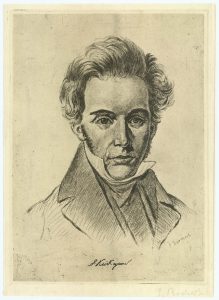Note: This review is also published simultaneously in the PDF special issue of JCRT 16.1.
Butler, Judith. Senses of the Subject. New York: Fordham University Press, 2015. ISBN-10: 082326467X. Paperback. 228 Pages.
Despite having appeared separately in journals or as chapters in other books over the last twenty years, the essays collected in Judith Butler’s Senses of the Subject avoid the redactive quality that often makes compilations feel like afterthoughts. Not unlike Subjects of Desire (1987) and The Psychic Life of Power (1997), its chapters contain critical engagements with other philosophers organized in loosely chronological fashion, not according to publication of the essays themselves but according to the eras in which their primary interlocutors lived and wrote, which include Descartes, Malebranche, Spinoza, Hegel, Kierkegaard, Fanon, and Irigaray.
The title encapsulates its central theme by playing on two meanings of sense as conceptions and as touch. The opening chapter on Descartes recounts a time when the author watched Elizabeth Fox-Genovese on C-SPAN discredit radically constructivist accounts of gender in a way that left Butler, who to this day is known by some only in association with roughshod readings of Gender Trouble (1990), according to her own report feeling implicated and indicted.[1]
Her handling of Descartes, who could also, adequately in his case, be accused of over-idealizing the body, is not, however, meant only to clarify that performativity does not discount the body’s materiality. Bodies That Matter (1993) already responded to the straw man criticism that emerged in reaction to Gender Trouble. So, for that matter, did Gender Trouble, and Senses of the Subject is not, except as the pretext for the Descartes chapter, primarily interested in rehashing that defense.
Perhaps a better way of framing the volume would be to say that Butler seems on this occasion, if only obliquely, to be clarifying her relationship to recent directions in cultural and feminist theory aligned with neo-empiricism and affect theory. One of the most significant contributions of Senses of the Subject is, I think, its demonstration that Butler’s formulations of the manner in which we are as embodied beings fundamentally in the hands of the other and that there is something inescapably social about the body are more appropriately described as neo-phenomenological than neo-empiricist.
This is evident in the considerable footprint occupied by her conversations with works by Merleau-Ponty. The chapters on Malebranche and Irigaray turn out to be occasions for Butler to explain herself with his assistance. In the chapter on Irigaray it is to defend him against his critics, including Butler’s fellow “radical feminists,” as Fox-Genovese would put it. In the several instances in which Butler makes herself most clear, as when she writes that “to have one’s being implicated in the other is thus to be intertwined from the start”[2], she is both summarizing Merleau-Ponty’s thesis and reiterating her own. To insist on the embodiment of our being does not, that is to say, preclude the possibility of more than one philosophical sensibility with respect to the constitution of both subjectivity and the ethical. Neo-empiricism is one possibility, but it is not the only one.
Among Butler’s books, this one’s thesis has a great deal in common with Precarious Life (2004) and Giving an Account of Oneself (2003), both of which are sustained reflections on ethics. More than the by now exhausted question of whether the social construction of sexual difference obscures bodies, Senses of the Subject examines how the body’s materiality, which conditions the formation of subjectivity in such a way that to become an “I” is to be in a position of proximity, dependence, and vulnerability, is also the condition of possibility for ethical response and responsibility.
The Other on whom my formation as a subject depends, given the body’s materiality and consequent sociality, is also the Other to whom I am unavoidably susceptible, hopefully to affection but potentially always to harm as well. Ethics, in short, is defined here and elsewhere by Butler as a response to something exterior and therefore unwilled and unchosen, which is a reality that is endemic to my formation as a self. Acknowledging that the concession of an unsurpassable dependence on the Other might seem like a passive way of portraying what subjectivity entails, Butler maintains that the precariousness of the subject’s primary relation to otherness can neither be willed away nor should we want to do so.
In chapter one, Butler argues that Descartes’s rationalist erasure of materiality is undercut by the way his  metaphors for the mind resort to imagery of language and the body. The mind becomes, for instance, an imprintable blank tablet upon which ideas and conceptions are written. The hand that writes, the marks it leaves, and the surface upon which those marks are inscribed all imply a materiality that Descartes’s text works hard to suppress.
metaphors for the mind resort to imagery of language and the body. The mind becomes, for instance, an imprintable blank tablet upon which ideas and conceptions are written. The hand that writes, the marks it leaves, and the surface upon which those marks are inscribed all imply a materiality that Descartes’s text works hard to suppress.
In his effort to persuade us that the senses deceive, moreover, he invokes the image of the body exposed. What if, Descartes wanted his readers to consider, I am not, in fact, seated by this fire clothed in this robe but somewhere else, perhaps in some public place and not even clothed but nude. Nudity’s prospect is meant to support the claims of rationalism by demonstrating the possibility that the senses deceive and yet it invokes, in spite of itself, the matter of corporeality. Butler wants to suggest that Descartes has conceded something else, the condition of exposure and vulnerability endemic to corporeal life.
Turning indirectly in chapter two to another early modern thinker, Butler considers Merleau-Ponty’s reading of Nicolas Malebranche. If the body’s corporeality reasserts itself in every attempt to conjecture about the nature of the self, then what can we learn about the formation of the self—about subjectivity, identity, and agency—from the condition of corporeality? What, more precisely, does it mean to be corporeally constituted? Malebranche, the seventeenth century rationalist theologian, proposed that the experience of tactility is a demonstration of all knowledge from and of God because it is a mode of sentience animated by something exterior. To be touched is to be enlivened as a feeling, knowing being even though the origin of the touch is external.
Instead of Cartesian introspection, Malebranche suggested that knowledge of and from God can only be understood as experimental and limited. From this paradoxically theological and yet uncharacteristically empirical formulation, Butler draws a conclusion about the condition of corporeality that “it is only on the condition that a body is already exposed to something other than it itself, something by which it can be affected, that it becomes possible for a sentient self to emerge”[3] and that if touch draws on something it cannot fully know, then I am conditioned and enlivened as a subject by something about which I can never give a fully adequate report.
To say that there is no subject prior to the touch and that the origin of both the touch and the subject is an Other I cannot know and master is the aspect of Butler’s thesis that seems to consign subjectivity to a passive state. Such a charge is both warranted and not, since, on the one hand, it is not as if there is a passive self prior to being enlivened by an active touch, but rather it is the touch that animates the self and draws it into being in the first place. And on the other hand, Butler wants to insist that a certain kind of passivity is not just present but requisite for the condition of corporeal being if it is to remain ethically responsive. In later chapters she will flesh out this chapter’s claim that “we are animated by others into whose hands we are born and, hopefully, sustained”[4].
Still within the orbit of seventeenth century rationalism, chapter three’s commentary on Spinoza’s claim that no one ever really wills suicide, that in such cases there is something else, something exterior that wills against our self-preservation, typifies a number of things about Butler’s style of doing and reading philosophy. One, already evidenced in the first chapter on Descartes, is that she pays careful attention to how the language of the text is often at odds with its claims and conclusions. The standard deconstructive strategy of reading an author against himself or herself, and of reading the text against itself, is in Butler’s case further supported by reading an author through the lens of another author, upholding one to another as a critical mirror that exhibits what is unacknowledged by the interlocutor.
Butler will read Spinoza against himself by showing how his text works at cross-purposes with his argument. She will read psychoanalysis against itself by identifying Spinoza as one of its seventeenth century theological precursors and she will read Levinas against himself by pointing to his failure to recognize his own claims when he engaged in criticisms of Spinoza. Although Levinas faults Spinoza for lacking a strong concept of the Other, the psychoanalytic account of the unconscious death drive can help us think about Spinoza’s external cause of the will to suicide as the Other that’s not actually missing, just unnamed, in his formulation.
It is somewhat surprising, I would add, that Butler does not do here what she has done on another occasion (2012), which is to interrogate Levinas’s commitment to his own construction of the ethical relation as one that takes place in the face to face encounter with the radically Other. In light of the way Levinas maintained that the Palestinian “has no face” (1989) it would appear that his Other and the face with which it confronts us was for him one of a rather diminished sense of alterity, since it appears to only include others of one’s choosing.
Chapter three advances Butler’s thesis another step forward by adding that corporeal selfhood entails being animated by an Other as well as that the reason this is potentially ethically enlivening is precisely because it is fundamentally unwilled, which is to say (with Spinoza’s as well as Butler’s Judaism in the backdrop), “unchosen.” I am not just in the hands of another, but unless the other is one that I can neither entirely comprehend, master, nor choose, then the possibility of an ethical relation is undermined.
Chapter four’s engagement with Hegel’s early fragment on love (circa 1797-98) joins the previous chapter on Malebranche, a later chapter on Kierkegaard, and the final chapter on Fanon as four good reasons that students and scholars of religion will want to read these essays. Butler’s avid readers will not be surprised that she defends Hegel as a misunderstood philosopher who is especially helpful for thinking about relationality and embodiment, as when she comments that “the error of expecting a totalizing system from Hegel has outlived its time” and “a certain obstinate materialism runs throughout Hegel”[5]. Although the fragment in question is nominally about love and yet it spends a good deal of time on religion, central to its argument is another concept, life, which cannot be understood apart from the characteristics of an open-ended totality and material embodiment.
 It was not until Phenomenology of Spirit that Hegel substituted life with spirit as a way of naming the absolute in its mediated form. Life developed out of his philosophy of nature as a way of thinking about the process of ongoing, open-ended development that both encompasses and exceeds all constituent living things. To be a living thing is to be constituted by exteriority through one’s participation, knowingly or not, in the whole of life.
It was not until Phenomenology of Spirit that Hegel substituted life with spirit as a way of naming the absolute in its mediated form. Life developed out of his philosophy of nature as a way of thinking about the process of ongoing, open-ended development that both encompasses and exceeds all constituent living things. To be a living thing is to be constituted by exteriority through one’s participation, knowingly or not, in the whole of life.
Life contains its own contradiction, death, as part of the dialectical condition that regenerates living things, and it necessitates two kinds of interactions: between individual living things (e.g., consumption and reproduction) and between living things and the overall evolution of life in nature. In other words, living things have their origin in and cannot live without primary relations to other living things and to the totality of a process that exceeds its parts. It is a concept that contains in germ form what Hegel would later attribute to Spirit.
In the early fragment under consideration, Hegel treats love and religion as occasions to reflect on the nature of what we might call a living union, one that simultaneously affirms the individuality as well as the implication of the self in relation to the Other. His question is how living things can exist in relation to other living things without deadening themselves, the others with whom they are in relation, and the union between them.
From the perspective of love, the question has to do with whether and how one relates to another without regarding the other as a form of property, and yet at the same time without overcoming the difference between the one who loves and love’s object to the point of vanquishing the difference between them, because that would also be self-negating. If the loving union is absolute, then the individuality of the lovers is negated, but if the independence of the lovers is preserved, then one of the lovers becomes an object for the other. From the perspective of religion, Hegel suggests two complementary (although not altogether obvious) possibilities as well. One is that religion requires the individual to sacrifice property to the collective, which is self-negating for the individual and transforms property into dead objects. The other possibility is that property and individuality persist but the union itself is consequently a dead union.
How can a living union with objects and others be sustained without deadening either the individual or the vitality of the union? What is required for a living union between subjects and objects and between self and other? Hegel’s suggestion is to expand the perspective on the life of the other in the living union to the whole of Life, so that the life of the other becomes at once an individual instance of living things and an embodiment of the totality of Life, which is to say, not simply a singular other but the mediated instance of an infinite alterity.
Lovers can never fully negate the difference between them without doing violence one to another because the materiality of their bodies gets in the way. And yet, if each lover treats his or her own body as property of the self, then the living union suffers a form of death. These questions about life, death, struggle, and the way to a living union are reminiscent of the way Hegel would in the coming years formulate the master-slave dialectic in Phenomenology.
Butler’s reading of Hegel would have benefited, in my view, from attention to Hegel’s wider philosophy of religion. Throughout Hegel’s early writings the counterpart to the problem of love was his interest in the materiality of the incarnate God whose fleshly being represented the possibility of a living union between God and humanity, one in which a living union is possible because physical and historical being has been invested with infinite Being. Butler does not delve into Hegel’s subsequent writings on Christianity, but she does draw a conclusion that follows from them.
Whether in love or religion, living unions cannot occur in an abstract collective because such unions are incapable of supporting the singularity of embodied beings. Just as reason could not exist apart from history and God could not exist apart from human history, so, too, love cannot exist apart from embodied being even if corporeality installs certain limitations within the union between lovers. In each case, what is important about Hegel’s philosophy for Butler’s theories of the subject and ethics is the notion that material embodiment positions us inside of a vast web of relationality, connectedness, dependence, and necessary vulnerability. Embodiment is both an individual empirical state and inextricably bound up with a relational matrix, a totality of bodies connected by their common exposure, or what Merleau-Ponty calls the intertwinement of the flesh.
To love another is to love a living being and it is to be in love with a life that is part of Life as such. Living unions are something we do, something done to us, and something in the hands of which we are in some sense always undone, but undone in a way that brings us forth into Life. To love another is not just to love a singular being but to be in the throes of a process that, even before it includes us, incites our very being. What Hegel calls God is for Butler another way of talking about the infinite web in which we are implicated and incited by the living union with an otherness that exceeds our grasp.
Not only can I not choose the other in relationship to which I am subjectively and ethically enlivened, I also cannot delimit the other to just this one being. By loving one I am effectively loving all, since I cannot negate the universality of the all without transforming the one into a dead object, personal property. Butler has essentially drawn upon the central Hegelian concept of concrete universality as a way of supporting her thesis that to be in the hands of an other I can neither choose nor fully account for is not to make an abstraction of the subject, since these claims do not negate but follow from the subject’s materiality. Embodiment is inadequately accounted for if we assume that bodies are nothing but discrete empirical entities. What we require is a kind of fleshly phenomenology to grasp that which is inescapably universal and relational about the condition of existing as embodied beings.
Considering the original date of publication of the fifth chapter on Kierkegaard (1993), one wonders whether this piece did not emerge from the same context (a 1990 conference on the ethics of the gift that took place in France) that resulted in Derrida’s Given Time (1992) and his long essay on Kierkegaard, The Gift of Death (1992, 1995). Like Derrida, Butler carefully considers Kierkegaard’s analysis of the Abrahamic sacrifice narrative in Fear and Trembling.
Unlike Derrida, Butler concentrates on the way Kierkegaard conceived the category of despair as a challenge to Hegelian reflection, in whose defense she once again writes. For one thing, Butler suggests that Kierkegaard’s characterization is “not always fair” given that Hegel’s subject is not, as Kierkegaard would have it, self-generating and in fact is, although Kierkegaard denies it, constituted in relation to something infinitely larger than itself. The difference is not that Kierkegaard’s subject is constituted by an infinite alterity and Hegel’s is not, but that Kierkegaard’s is an interior infinite alterity whereas Hegel’s is an externally social one.
Furthermore, Butler renews the claim she first made in Subjects of Desire that the Hegelian subject, inasmuch as it is mediated by what Hegel calls reflection, or by a process of seeing oneself in the eyes of another, is not, as it is for some reason often seen, a strictly rational affair.
Although Kierkegaard questions Hegel’s construction of the infinite in terms of the universality of the absolute, the essence of which for Hegel is, no doubt, reason, there are at least two ways in which Butler suggests that Kierkegaard has not been altogether fair here. The first is that Hegel’s concept of reason is a mediated reason that is inseparable from its socially embodied forms. I am unsure whether this particular response sticks since Kierkegaard seems to have wanted to challenge not one but two conceptions of the universal (or what he terms the ethical): abstract rational universality as well as concrete social universality.
Kierkegaard praises Abraham because in obedience to the absurd request he consulted neither. He did not

withhold obedience because of some Kantian imperative against the irrationality of the decision, nor did he consult social norms as a standard. Instead of logic or the community he instead responded only to the internal call and made the leap of faith.
The second kind of unfair treatment gives Butler more to work with, which is that Kierkegaard ignores the role of passions such as desire and fear in Hegel’s construction of the struggle for recognition. The claim that Hegel’s fully synthesized subject is too easily achieved (as if it could do so simply by assimilating the self into the whole, and as if, in any case, a fully synthesized subject appears anywhere in Hegel’s works) is belied, somewhat embarrassingly for Kierkegaard, by the fact that it was Hegel who first employed the language of fear and trembling twice in section 3b of the lordship and bondage passages of Phenomenology of Spirit.[6]
Hegel used these terms to describe the life and death struggle, the leap, if you will, that the bondsman has to undergo on the path to self-consciousness decades before Kierkegaard adopted those terms as his own nomenclature for an alternative to Hegelian subjectivity. What this chapter adds to the development of Butler’s thesis in Senses of the Subject is not as considerable as in other places, but it demonstrates her commitment to the claim that the infinite alterity that constitutes the self in such a fundamental way is neither internal nor mystical, and neither is it abstract. It is something that confronts us from outside ourselves, but it is an exteriority whose materiality is grounded in the fleshly phenomenology of embodied being.
Already in the chapters on Descartes, Hegel, and Kierkegaard, Butler had established the practice for which she is well known of inserting herself into conversation with a text by first paying attention to its language. Descartes’s manner of doubting himself constructed the doubting self already as a kind of double of himself. Hegel’s long and difficult sentences make reversals and switch perspectives in a way that is ultimately revealing about love itself.
In The Sickness Unto Death Kierkegaard did not challenge Hegel in propositional sentences but by imitating Hegel’s style. In Fear and Trembling he invoked faith in something outside language but could only do so by writing in language and he attempted to sidestep the problem by writing pseudonymously. Chapter six’s critical engagement with Irigaray follows suit, except in this case the point is far more pertinent to the nature of Butler’s criticisms.
She notes that Irigaray’s manner of engaging the writings of male philosophers enacts the theories it interrogates by subordinating itself to the power of their texts. Irigaray’s habit of including and then interacting with very long quotations from, for instance, Merleau-Ponty’s essay on intertwining, does not, in practice, counter a radically feminine other to his dominant masculine position because instead it implicates her in an otherness she seeks to oppose. Butler will suggest that Irigaray’s style of critical engagement is once again at cross-purposes with the claims she makes about the ethical relation and that, in effect, we stand to learn more from what she has done in the text than from what she has said in it.
What is at stake in this chapter will once again be the question of the universal, which Butler insists, and has done so for a long time now, is not something we can or should do without but is instead something in need of restaging.[7] In Irigaray’s construction of the ethical relation, the pretension to universality is masculine whereas to contest those pretensions characterizes the feminine. The universal presumes that men and women are reciprocally positioned in language, but the feminine exposes the fact that actually the relation is asymmetrical, so that every supposed substitution becomes an act of appropriation and erasure.
For Irigaray, to speak of the ethical relation must instead be to invoke the incommensurability of the two terms rather than their mutual substitutability. The other is not the same but beyond me, the limiting condition of myself, whereas what characterizes masculine ethical relations is (like the charge commonly made of Hegel) an effort to return otherness to the self, to make the other its reflection.
Butler observes that Irigaray’s Ethics of Sexual Difference (1993) approaches the ethical relation differently than what was at the time the more well known Speculum of the Other Woman (1985). Irigaray’s method in Ethics of Sexual Difference of engaging in critical dialogue with the texts she reads acknowledges her debts to them, which is not a model of equality or substitution but it is also not a model of radical opposition and otherness. It is instead, Butler argues, a model of intertwinement.
And yet, Irigaray specifically challenges Merleau-Ponty’s concept of intertwinement as one that repudiates the maternal origins of the masculine (Irigaray borrows the idea of the maternal origins of the masculine from Freud) even as he disguises it in a theory of the flesh. Butler defends Merleau-Ponty (describing Irigaray’s criticisms of him as unpersuasive) by reiterating that his theory of the flesh is not masculine in the way Irigaray suggests since “the embodied status of the ‘I’ is precisely what implicates the ‘I’ in a fleshly world outside of itself [so that] the ‘I’ is no longer its center or ground.” This chapter then contains what I regard as the most succinct statement of Butler’s thesis in Senses of the Subject:
To have one’s being implicated in the other is thus to be entwined from the start, but not for that reason to be reducible to—or exchangeable with—one another. Moreover, to be implicated elsewhere from the start suggests that the subject, as flesh, is primarily an intersubjective being, finding itself as other, finding its primary sociality in a set of relations that are never fully recoverable or traceable. This view stands in stark contrast both to the Freudian conception of the ‘ego’, understood as the site of primary narcissism, and to the various forms of atomistic individualism derived from Cartesian and liberal philosophical traditions. (168)
What is at stake is in other words a way of differentiating two possible meanings of otherness as an ethical concept. There is on one hand the otherness of radical opposition, an Other radically beyond me because it is infinite, transcendent, distant, or opposite, and on the other hand the otherness of entwinement, an Other in whom I am always implicated and with respect to which I am always in some way proximate, related, and touched by it, which is why it is an Other to whom I am unavoidably vulnerable, susceptible, potentially affirmed by affection or harmed by injury.
In the final chapter on Fanon, Butler further pursues the question of vulnerability to harm as well as the option of violence in response to it. Chapter seven is as much about Sartre as it is about Fanon because the text she reads is Sartre’s preface to The Wretched of the Earth (1961). Butler’s argument will be, as it was in the months after September 11 (2004), that the experience of injury at the hands of another is an opportunity for ethical responsibility, and yet it is a possibility that is thwarted by the response of violence in the self-defeating quest for justice. She is critical of Sartre’s attempt to explain to French readers the moral justification for anti-colonial violence that Fanon’s book expressed, but her arguments are subtle and somewhat unpredictable.
She begins by questioning the mode of address in Sartre’s preface. He does not speak to Fanon’s audience of colonial subjects but instead to an audience of French citizens, and he addresses them as outsiders, observers, since the book does not have them as its intended audience. Butler observes that in this mode of address, which is not to Algerians but to French citizens, Sartre has effectively repeated the colonial practice of non-address to colonial subjects with all of its dehumanizing implications, in spite of the fact that it is this history of dehumanization that Sartre is indicting. By addressing them as privileged readers has he not, in a way, solidified their privilege as well as the very pattern of social death arising from non-address that colonialism entailed?
Sartre’s preface is contrasted with an introduction to a newer edition of The Wretched of the Earth written by Homi Bhabha in 2004. Bhabha sees Sartre’s reinforcement of nationalist binarism undermined in Fanon’s text, which opposes ethnonationalism and anticipates the formation of a new future and a new man. Butler and Bhabha are not unaware of the critique of masculinism in Fanon’s text, which writers such as Rey Chow (1998) and others have commented on, but Butler will ultimately be very interested in the figures of a new man and new future that appear at the end of The Wretched of the Earth.
When Sartre defends what he interprets as a justification for violence in Fanon’s text, his language figures it as a form of masculinist agency, something that a man must do in the name of liberation, a mode of manly self-making and self-invention. While Fanon does not avoid the language of masculinism, it is not clear to Butler that Fanon sees violence as that which opens up possibilities for the new future. For Fanon, the violence of the colonized is an absorbed reflection of centuries of colonial violence perpetrated against them.
Since the argument of Fanon’s text is that the colonized need to create a new sense of self, a new way of being, a new culture, and even a new kind of bodily experience that is no longer marked by the effects of that which was suffered in colonialism, a question emerges as to whether it is possible to see in Fanon something like an ideal of self-making by other means than the very same kind of violence that is the impression left by the colonizer’s brutality.
It could be that even Sartre’s preface registers such possibilities, however dimly. Near the end he defines the future man by the infinite unity of mutual needs, one in which, as Butler puts it, physical need and vulnerability become matters of mutual recognition and regard, and yet this is not the conception of reinvention that dominates Sartre’s preface. At the end of Fanon’s text, however, Butler notices a marked change of tone and pays particular attention to the manner in which Fanon’s vision for a new future is expressed through the mode of prayer.
When Fanon writes, “Oh my body, make of me a man who questions,” he has for one thing enacted the aspiration for a new culture, one that is no longer Western, European, and Christian, by praying to the body and not God, and not to a singular body but to the social body that has collectively suffered and seeks regeneration. Butler points out that the kind of opening and regeneration that Fanon is invoking at this point is neither masculinist nor nationalist, nor is it knowing of what will come and is therefore unprescriptive.
 It is instead rooted in a sense of tactility, which is to say, not a plea for radical independence from or opposition to the other but for a world in which relations to others are open-ended and fulfilling. “Why not,” writes Fanon, “the quite simple attempt to touch the other, to feel the other, to explain the other to myself? […] Was my freedom not given to me then in order to build the world of You?” This suggests a sort of re-corporealized humanism in which there can be no invention of the self without the You because the self is constituted by modes of address that allow for its constitutive sociality, vulnerability and all. Butler describes it as a struggle toward a new universalism based on the shared infinity of mutual needs.
It is instead rooted in a sense of tactility, which is to say, not a plea for radical independence from or opposition to the other but for a world in which relations to others are open-ended and fulfilling. “Why not,” writes Fanon, “the quite simple attempt to touch the other, to feel the other, to explain the other to myself? […] Was my freedom not given to me then in order to build the world of You?” This suggests a sort of re-corporealized humanism in which there can be no invention of the self without the You because the self is constituted by modes of address that allow for its constitutive sociality, vulnerability and all. Butler describes it as a struggle toward a new universalism based on the shared infinity of mutual needs.
Butler’s preferential treatment of the likes of Hegel and Merleau-Ponty in Senses of the Subject is an indication of the distance she maintains from theories of the subject and ethics that remain antagonistic to any and all notions of universalism. What was mistaken by many as an idealized version of the socially constructed body in Gender Trouble is in fact an effort on Butler’s part to acknowledge that it is precisely the materiality of the body that accounts for the fact that we are more than our bodies, or that bodies are not self-evident.
The very nature of embodiment entails our relation to the vast fleshly web of mutual touching and being touched, a condition that is not only unavoidable but fundamentally constitutive and enlivening in the sense that it is what gives rise to our sense of being a subject in social matrices of interaction. Our common vulnerability to one another as beings who touch and are touched and who are therefore mutually susceptible to harm and affection is the condition of possibility for becoming ethically responsive agents.
If I could somehow accomplish once and for all the liberal fantasy of invulnerability, then I would no longer be in need of acknowledging the kind of vulnerability that necessitates empathy. But to acknowledge my shared vulnerability with all the others who are just as vulnerable, even with those who might seek to take advantage of my vulnerability by doing me harm, is to recognize the urgency of creating a world characterized by relations of affection.
On my reading, Butler’s ideas about the ethical would be diminished by the limitations of anything resembling a strictly empirical account of the subject because such theories have no way of taking stock of that which exceeds and brings about conditions of relatedness among the empirical. Like Butler, I am somewhat uncomfortable with everything that is represented by the term phenomenology, but I understand what is at stake in insisting that the universal in some form or another is not something that we should be prepared to part with.
Matthew Waggoner is an assistant professor of philosophy and religion at Albertus Magnus College in New Haven, Connecticut.
_________________________________________________________________________
[1] Butler did not provide citational details about the C-SPAN speech, but she could have been referring to the time when C-SPAN broadcasted Fox-Genovese speaking on 18 March 1998 at Calvin College in Grand Rapids, Michigan, during which she said that “Nature is not a popular idea these days, at least among the university professors and radical feminists who shape our culture. And if nature is not popular, the power of nature is anathema, especially if someone dares to link nature and human beings or to suggest that some attributes might naturally be more common to women than to men, or the reverse. The very idea that there might be a core female nature, however small, that women or most women share is taken to insult the intelligence and stifle the ambitions of any self-respecting modern woman.” Retrieved on 26 September 2016 from https://www.c-span.org/video/?99625-1/feminism.
[2] Butler, Judith. Senses of the Subject. Bronx, NY: Fordham University Press, March 2, 2015. ISBN-10: 082326467X. Paperback. 168.
[3] Ibid., 41.
[4] Ibid., 62.
[5] Ibid., 102.
[6] Hegel writes: “For this consciousness was not in peril and fear for this element or that, nor for this or that moment of time, it was afraid for its entire being; it felt the fear of death, the sovereign master. It has been in that experience melted to its inmost soul, has trembled throughout its every fibre, and all that was fixed and steadfast has quaked within it” and again “this type of consciousness has also a negative import, in contrast with its moment, the element of fear. For in shaping the thing it only becomes aware of its own proper negativity, existence on its own account, as an object, through the fact that it cancels the actual form confronting it. But this objective negative element is precisely alien, external reality, before which it trembled.”
[7] Butler, Judith, Ernesto Laclau, and Slavoj Žižek. Contingency, hegemony, universality: contemporary dialogues




